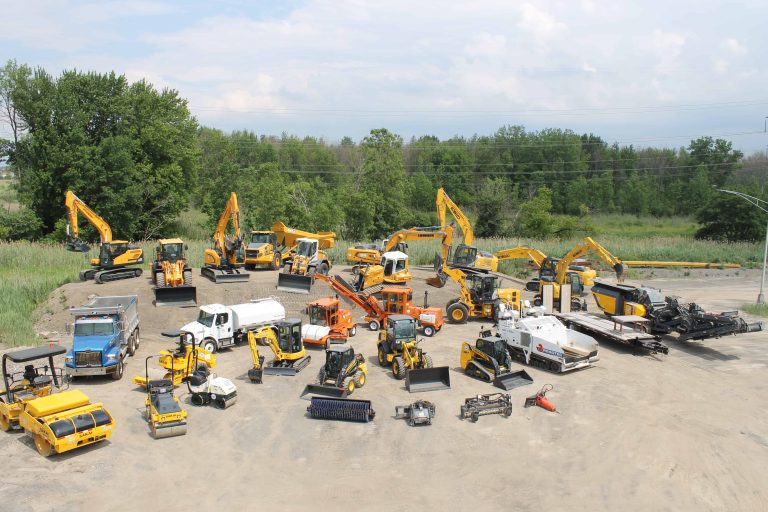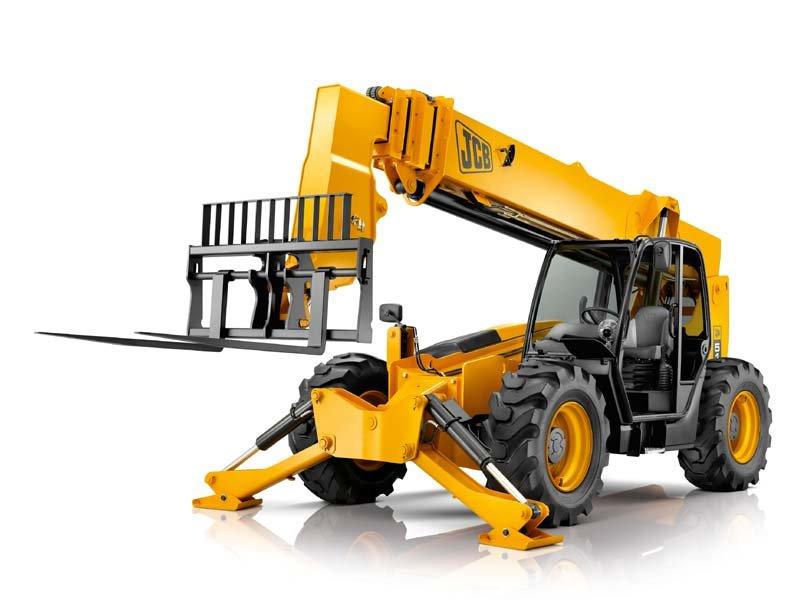Construction Equipment Rentals: Heavy Duty Machinery for Your Tasks
Construction Equipment Rentals: Heavy Duty Machinery for Your Tasks
Blog Article
Maximize Your Budget by Recognizing the Expenses Connected With Construction Tools Leasings
Understanding the full range of prices associated with building devices services is essential for maximizing your budget. What methods can be used to effectively manage these expenses and make sure an extra reliable rental experience?
Review of Rental Expenses
When taking into consideration building tools leasings, understanding the connected costs is vital for effective budgeting and task planning. Rental expenses can differ considerably based upon several aspects, including devices kind, duration of leasing, and area. The initial rental charge frequently mirrors the equipment's market demand and its linked operational abilities, affecting the total expense.
Along with the base rental price, ancillary expenses may develop, such as transportation fees, fuel surcharges, and maintenance fees. It is vital to account for these additional costs to properly assess the total expense of renting out tools. The rental duration can influence rates; longer services might certify for discounted rates, while short-term rentals might incur higher daily charges.

Breakdown of Rental Prices
A thorough understanding of rental prices is vital for professionals and project managers intending to enhance their budget plans. Rental rates for building and construction tools normally contain a number of components, including base prices, time-based costs, and use fees.
Base rates are the core charges linked with the service of the equipment, commonly determined by the type and dimension of the machinery. These rates can differ substantially, affected by elements such as devices demand, schedule, and regional market trends. Time-based costs, which may be daily, weekly, or monthly, offer to fit various job timelines and rental durations.
In addition, rental rates might include use fees, which apply when tools is used past a specified limit, guaranteeing that the rental firm can represent wear and tear. Seasonal need fluctuations can likewise affect rental rates, with peak building and construction seasons normally regulating higher rates.
Furthermore, recognizing the rental company's plans regarding maintenance and insurance policy can offer more insight into the total cost structure. By assessing these components, specialists can make enlightened decisions, making sure the option of rental equipment lines up with both task requirements and budget plan restrictions.
Extra Charges to Think About
Comprehending the ins and outs of added costs is crucial for contractors to manage their overall rental expenses effectively. Beyond the basic rental rates, various additional charges can significantly impact the total price of devices service. These costs frequently include shipment and pick-up fees, which can vary based on distance and logistics involved in delivering the tools to and from the job website.
In addition, some rental business may impose fuel additional charges if the equipment is returned with much less gas than when rented. It is also important to be mindful of potential cleansing costs, specifically for specialized devices that requires thorough maintenance after usage.

Thoroughly evaluating the rental arrangement and clarifying these added fees upfront can help professionals avoid unanticipated expenses and make sure that budget plans continue to be undamaged throughout the project lifecycle.
Repair And Maintenance Expenses
Regular upkeep and repair service expenditures are usually forgotten variables that can considerably affect the overall expense of construction tools rentals. When renting equipment, it is essential to think about not only the rental fees article source yet likewise the prospective expenses connected with keeping the equipment in optimal operating condition.
Numerous rental companies consist of standard upkeep as part of the rental contract; however, extra unanticipated break downs or considerable fixings can bring about additional costs. It's construction plant for sale vital to assess the rental contract thoroughly to understand what upkeep solutions are covered and what obligations fall on the renter.
In addition, equipment that is not well-maintained can result in inefficiencies on duty site, potentially causing hold-ups and raising project expenses. To mitigate these dangers, it is a good idea to perform regular evaluations and keep open interaction with the rental service provider concerning any concerns that arise throughout use.
Insurance Coverage and Responsibility Expenses
Insurance coverage and responsibility costs are crucial elements that can considerably impact the general expense of building devices services (heavy equipment rental). These prices make certain that both the rental company and the customer are safeguarded from prospective economic losses arising from mishaps, damages, or theft during the rental period

Furthermore, customers need to recognize any type of deductibles or exemptions in the insurance coverage, as these can impact potential out-of-pocket costs. Comprehending the terms of any kind of insurance policy protection road building equipment is essential to avoid unanticipated costs. Inevitably, budgeting for insurance coverage and liability expenditures can aid ensure a smoother rental experience and shield versus monetary threats related to building and construction tasks.
Conclusion
Finally, an extensive understanding of the expenses connected with construction tools leasings is essential for reliable budget management. By evaluating rental rates, extra charges, upkeep expenditures, and insurance coverage demands, people and companies can reduce unforeseen expenses. This calculated method not only improves cost-effectiveness but additionally makes sure that tasks proceed smoothly and efficiently. Eventually, educated decision-making concerning devices leasings contributes to the overall success of construction undertakings.
Rental expenses can vary dramatically based on several factors, consisting of equipment type, period of leasing, and location (equipment rental company). The rental period can affect rates; longer services may certify for discounted prices, while temporary services may sustain higher everyday charges
By conducting complete research and involving with trusted rental companies, service providers can efficiently navigate the complexities of rental pricing, eventually optimizing their monetary resources.
Past the standard rental rates, different additional charges can substantially influence the overall price of tools leasing. Rental firms commonly give liability insurance coverage that covers injuries to third celebrations or damage to property, while devices damages insurance policy can cover the cost of repairs or replacement if the leased equipment is damaged.
Report this page